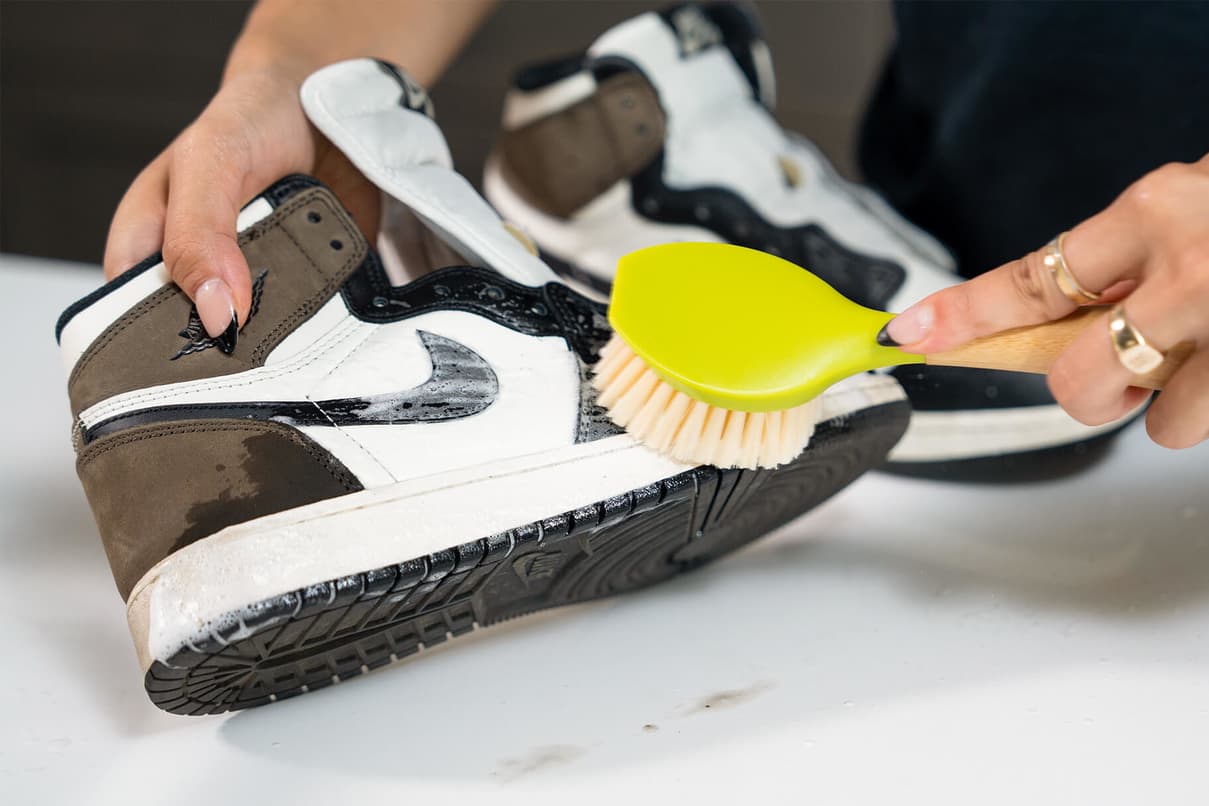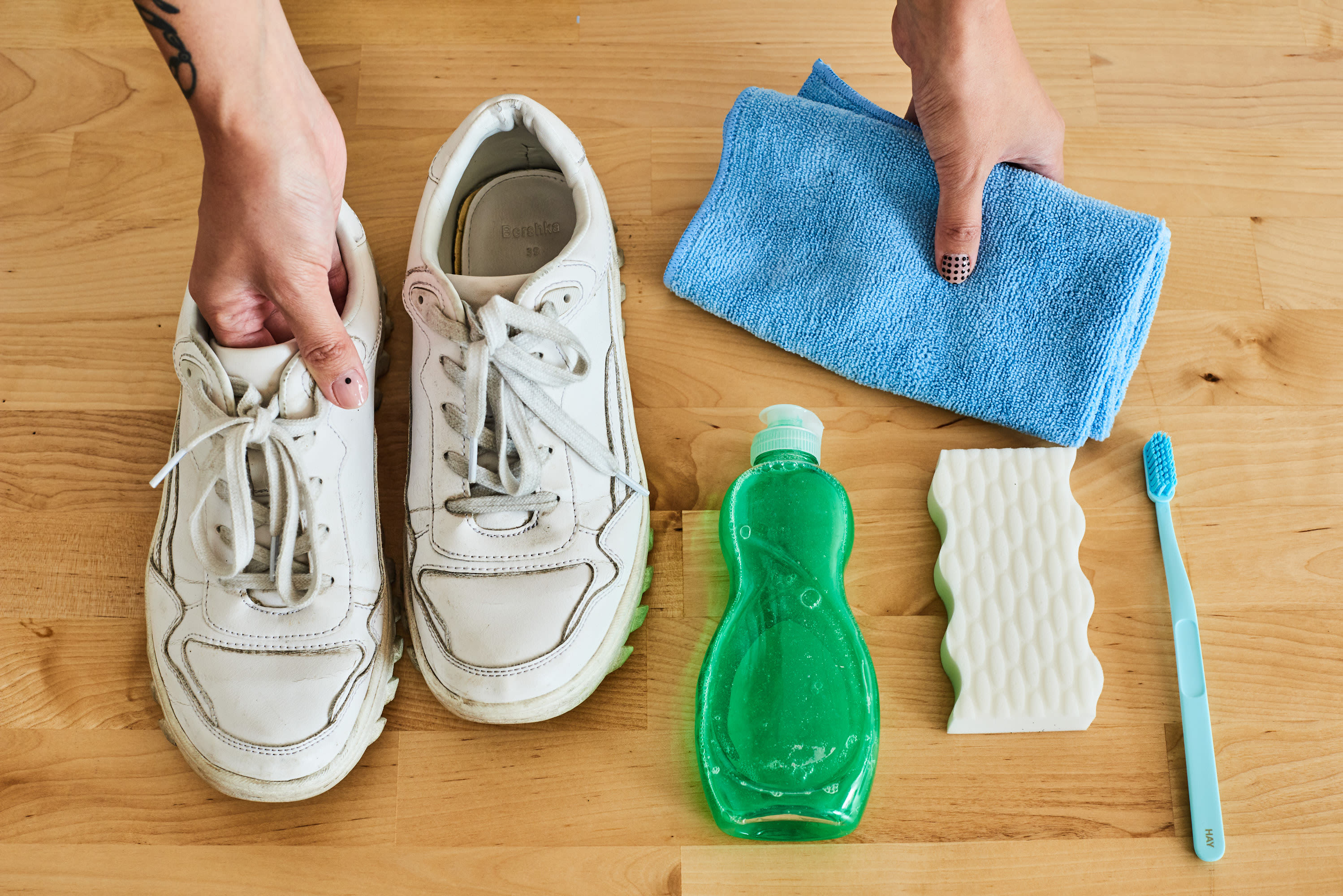Welcome to the ultimate guide on how to wash your tennis shoes! If you’re a shoe enthusiast, a fashion lover, or even a business owner who understands the importance of maintaining footwear, you’re in the right place. Tennis shoes, also known as sneakers, are not just functional but also a style statement. Whether you’re hitting the gym, running errands, or going out with friends, keeping your shoes fresh and clean is essential.
The Importance of Cleaning Your Tennis Shoes
Before diving into the how-to’s, let’s discuss why cleaning your tennis shoes is crucial. Over time, dirt, grime, and stains accumulate on your shoes, which can not only detract from their appearance but also affect their longevity and performance.
Benefits of Keeping Your Shoes Clean
- Enhanced Longevity: Regular cleaning can extend the life of your shoes, saving you money in the long run.
- Improved Performance: Cleaning ensures that materials like rubber and foam remain effective.
- Better Hygiene: Removing bacteria and odors helps maintain foot health.
- Stylish Appearance: Clean tennis shoes look better and boost your confidence.
Gathering Your Supplies
To get started, you’ll need a few supplies handy. Here’s a list of essential cleaning items you should gather before starting the washing process:
Essential Supplies
- Soft-bristle brush or old toothbrush
- Microfiber cloths
- Warm water
- Gentle detergent (like dish soap or laundry detergent)
- Baking soda (for odor removal)
- White vinegar (for tough stains)
- Old newspapers or shoe trees (to maintain shape while drying)

Having these supplies ready will make the cleaning process smoother and more efficient.
Step-by-Step Guide on How to Wash Your Tennis Shoes

Step 1: Preparation
Before you start cleaning, it’s important to prepare your shoes. This involves removing laces and insoles. Here’s how:
- Remove the Laces: By taking off the laces, you can clean them separately, ensuring a thorough clean.
- Take Out the Insoles: These can often retain odors. Set them aside for cleaning as well.

Step 2: Dry Brush the Shoes
Using a soft-bristle brush, gently remove any loose dirt and debris from the surface of your shoes. Pay extra attention to the rubber soles, as they often collect grime.
Step 3: Prepare Your Cleaning Solution
Mix warm water with a small amount of gentle detergent in a bowl. If you’re targeting tough stains, consider adding a tablespoon of white vinegar to your solution for extra power.

Step 4: Clean the Exterior
Using your brush or a cloth, dip it into the solution and gently scrub the exterior of your tennis shoes. Focus on stained areas with circular motions. For mesh materials, use a light touch to avoid damaging the fabric.
Step 5: Clean the Laces and Insoles
For the laces, you can soak them in the soapy water for about 15-20 minutes before scrubbing gently with a brush. For the insoles, use a damp cloth with the cleaning solution to wipe them down thoroughly. Avoid soaking them as this can damage the material.

Step 6: Rinse and Dry
After cleaning, rinse the shoes with a damp cloth to remove any detergent residue. Next, stuff your shoes with old newspapers or insert shoe trees to maintain their shape. Place them in a well-ventilated area to air dry. Avoid direct sunlight as this can warp some materials.
Alternative Methods for Cleaning Tennis Shoes
Sometimes, the traditional method might not suffice. Here are a few alternative methods you can try based on your shoe material and type of staining:

Machine Washing
Check your shoe’s care label; if it’s machine washable, remove the laces and insoles, and place them in a mesh laundry bag. Use a gentle cycle with cold water and mild detergent. However, avoid washing shoes with leather, suede, or specialty fabrics in the machine. These often require special care.
Using Baking Soda for Odor Control
Baking soda is a fantastic natural deodorizer. For shoes that have absorbed odors, sprinkle a generous amount inside and leave them overnight. Shake out the excess in the morning.

Commercial Products
If you’re short on time or prefer a hassle-free solution, consider investing in a commercial sneaker cleaning product. Brands like Jason Markk and Reshoevn8r offer sprayers and wipes specifically designed for cleansing sneakers without damaging the materials.
Case Studies: User Experiences
Real-world experiences can provide noteworthy insights. Let’s take a look at a few case studies of individuals who successfully cleaned their tennis shoes.
Case Study 1: Emily’s White Adidas Superstar
Emily purchased her white Adidas Superstars for a summer festival. After a week of wear, they became visibly scuffed. Following our guide, she removed the laces and used a toothbrush along with a vinegar-water solution to scrub them. The results? Almost like new!
Case Study 2: Mike’s Running Shoes
Mike, an avid runner, noticed his shoes smelled after long runs. He poured some baking soda inside and left it overnight. The next day, his shoes smelled fresher than ever! He now regularly cleans them and avoids unpleasant odors.
Comparison Table: Cleaning Methods
| Method | Effectiveness | Time Required | Pros | Cons |
|---|---|---|---|---|
| Hand Wash | Very High | 30-60 minutes | Thorough and gentle | Time-consuming |
| Machine Wash | Moderate | 20-30 minutes | Quick and easy | Risk of damage |
| Baking Soda | High (for odors) | Overnight | Natural deodorizer | Only for odors |
| Commercial Cleaners | Very High | 15-30 minutes | Convenient | Costly |
Tips for Maintaining Your Tennis Shoes
Once you’ve successfully cleaned your shoes, it’s essential to maintain them to prolong their life. Here are some tips:
Regular Cleaning Schedule
Make it a habit to clean your tennis shoes at least once a month, or more frequently if you wear them often. Regular maintenance helps avoid buildup and stubborn stains.
Avoiding Harsh Chemicals
When cleaning, steer clear of bleach or other harsh chemicals. These can degrade shoe materials and alter colors, especially on white or light-colored shoes.
Storage Tips
Store your shoes in a cool, dry place away from direct sunlight. Consider using shoe bags or boxes to protect them from dust.
Protective Sprays
After cleaning, applying a protective spray can help guard against dirt and stains. Look for sprays designed for your shoe material, whether it be leather, canvas, or synthetic.
Pros and Cons of Different Cleaning Methods
When it comes to washing your tennis shoes, understanding the pros and cons of each method can help you make an informed choice.
Hand Washing
- Pros: Thorough cleaning and control over the process.
- Cons: Time-intensive and may require more effort.
Machine Washing
- Pros: Convenient and saves time.
- Cons: Not all shoes are machine washable; risk of damage.
Using Baking Soda
- Pros: Cost-effective and utilizes natural ingredients.
- Cons: Only effective for odors, not stains.
Commercial Cleaners
- Pros: Specifically designed for shoes, easy to use.
- Cons: Can be expensive for ongoing use.
Frequently Asked Questions (FAQs)
1. Can I machine wash my tennis shoes?
It depends on the material. Always check the care label first. If machine washing, ensure they are placed in a mesh bag and washed on a gentle cycle.
2. What should I do if my shoes still smell after cleaning?
If odors persist, try sprinkling baking soda inside and leaving it overnight, or use a specialized odor removal product.
3. How often should I clean my tennis shoes?
It’s best to clean them at least once a month, or more frequently if you use them often or they become visibly dirty.
4. Can I use bleach to clean white tennis shoes?
While bleach can be effective for whitening, it can also damage the material. It’s best to use a gentle detergent and water solution.
5. Are there any products specifically designed for cleaning tennis shoes?
Yes, several brands offer sneaker cleaning solutions that are formulated to be tough on stains while being gentle on shoe materials, such as Jason Markk and Reshoevn8r.
6. Should I take my insoles out when washing my shoes?
Yes, it’s advisable to remove insoles so you can clean them separately and allow for better drying.
7. What’s the best way to prevent stains on my tennis shoes?
Apply a protective spray after cleaning, and avoid walking on muddy or wet surfaces whenever possible.
8. Can I dry my shoes in the dryer?
It’s best to avoid using a dryer as the heat can warp the materials. Air drying is the safest method.
9. How can I get rid of scuff marks on my tennis shoes?
For light scuff marks, a magic eraser or a damp cloth with a mild detergent can work wonders. For tougher marks, you might need to scrub with a brush.
10. Is it safe to use vinegar to clean my shoes?
Yes, vinegar can be a great natural cleaner, especially when mixed with water. Just be cautious with certain materials, as vinegar may not be suitable for all shoe types.
Conclusion
Now you are equipped with all the knowledge and tips to keep your tennis shoes looking fresh! Regular maintenance not only enhances the appearance of your footwear but also extends their lifespan. Remember to choose the right cleaning method based on your shoe material and follow best practices to maintain their shape and hygiene. Happy cleaning!